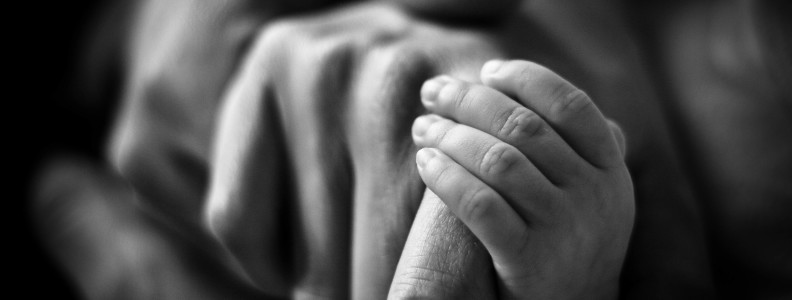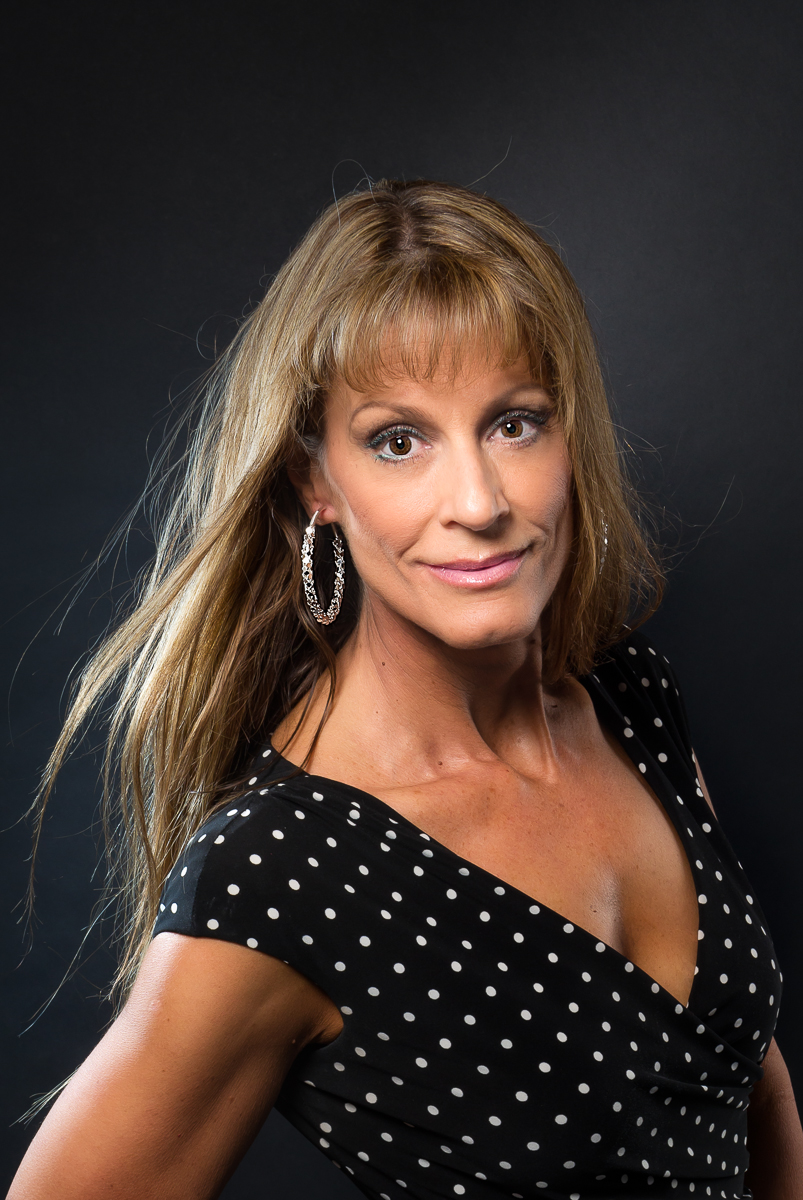A Guest Post by Lee French
I’ve never needed inspiration to write. From the moment I figured out letters could be arranged to form words which in turn could form sentences, I’ve been brain barfing all over the place. At the age of 6, it all clicked in my head. A few years later, thanks to the influence of Charlotte’s Web, I wrote a magnificent 6 page epic about turkeys and eagles and a crotchety old man. It got a shiny gold certificate of merit in the regional Young Author’s Faire, which probably had about the same value as a pat on the head.
It sat in a box in my closet for a long time.
Last summer, I moved after living in the same place for 15 years. The distance of the move—from Massachusetts to Washington state—meant that every square foot of stuff cost me a fair amount of money to get from point A to point B. In the process of preparing to move, I went through everything and tossed/donated/recycled umpteen bags of crap.
By the time I decided to move, I’d already self-published five books. With those five books, one of which is no longer available, I made a lot of mistakes. Looking back, it’s amazing how many awful, horrific blunders I committed. At that point, in May of 2014, I knew I’d made mistakes, and had an understanding of the scope of them. The idea of fixing them bore a great deal of resemblance to the process of packing up one’s voluminous belongings and leaving a house forever.
Two daunting yet necessary tasks converged and weighed me down. This was a dark moment when writing ceased to be a joy and became a chore. I saw it as a job instead of a diversion, the kind of drudgery best handled with a bottle of wine or three. Bang, bang, bang, went my fingers on my keyboard until I wore out the C key and space bar. Thanks, me, good job on making this even worse. True frustration is typing with an intermittently functioning space bar. It’s extra bad if you also like to play computer games like Orcs Must Die.
There I was, going through all my stuff and my kids’ stuff, thinking that selling my house and moving across the country could be the worst thing I’ve ever inflicted on myself besides the decision to self-publish a book. I had to fight with my kids to convince them to part with things they never used but refused to accept parting with anyway. The logistics of ensuring our pet mouse survived the journey seemed ridiculous. I had just surfaced from the unpleasantness of a divorce, and because of the move, had to dive back into contentious negotiations for visitation and child support. On top of all this, both my kids have wildly different manifestations of autism, which is a constant source of…lots of things.
Of course, there’s more. I’d been getting involved in local Worcester politics for a couple of years. In many ways, it never seemed like I, personally, had an effect on anything. We marched in the streets, we held standing protests and vigils, and we attended city council meetings. While the people I did these things with sometimes won small victories, I had the sense of being an ant among giants. They knew all the right things to say and do, and I had nothing to offer beyond holding a sign. Though I believed in all these causes and things, participating made me feel smaller than standing on the sidelines.
And then I sorted through that box.
Early July 2014, I sat in my bedroom with my old box of stuff. Sun poked through the cheap PVC blinds we’d never replaced after moving in. The window A/C unit chugged away, keeping the room pleasantly cool. I finally threw out the broken Discman I’d held onto since college for unknown reasons. My old high school drumsticks went into the trash too. I flipped through folders of old D&D characters and campaign notes, and then I found my first book.
I ran my fingers over the hideous red and green plaid fabric covering two pieces of cardboard for a cover. The sticker, though worn around the edges, was still shiny. Cracking it open, I found worn and yellowed pages of high quality paper on which I’d hand-written blue ink with a felt-tip pen:
A New Adventure in the Mean Old Man’s Backyard
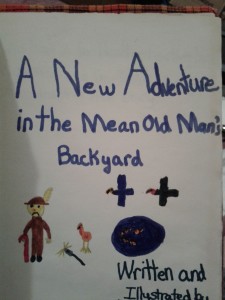
Written and illustrated by Lee French
Along with these words, I found colored-in stick figures of a frowning person with a cane and feathered hat, a mouse, a turkey, two eagles, and a pond with three orange fish. My allergies may have acted up right then. Or something. I’m sure there’s an explanation for all the water that rushed to my eyes. Turning the page, I found black ink. The lines I drew in pencil with a ruler to keep the text straight had never been erased.
This book is for Heather Feather, Miss Moussese and Garfield Whale, who inspired this story.
Clearly, I should be outraged that I didn’t use Oxford commas then.
The world stopped while I paged through the book, reading my early prose. I remembered my mom, who has a degree in English, being proud of me for entering it into the Faire in the first place. I remembered the original story about The Mean Old Man’s Backyard, which involved turkeys because that was the only thing I knew how to draw. I remembered going to the Faire and seeing all those books and thinking…I’d have a real one of my own someday.
Sometimes, it takes a child to reveal a simple truth. Sometimes, that child is you.
I tucked the book into a new box and have never looked back again.
About the Author: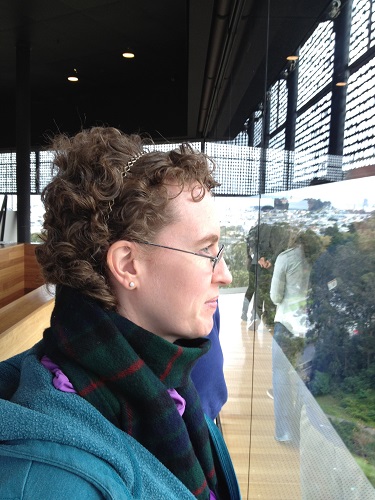
Lee French writes fantasy and superhero stories in Olympia, WA. Her favorite non-writing pastimes include tormenting D&D players, destroying weeds with fervor, and arguing in favor of Oxford commas. She is an active member of the Northwest Independent Writer’s Association and serves as one of two Municipal Liaisons for the NaNoWriMo Olympia region. Find more of her babble about bicycling, books, and bedevilment at www.authorleefrench.com.
 I love the topic of this month’s Fictorian posts. Community is so important to writers. I started writing almost ten years ago, and approached it like many of us do: huddled over a keyboard in a quiet little corner. Just me, my computer, and my story.
I love the topic of this month’s Fictorian posts. Community is so important to writers. I started writing almost ten years ago, and approached it like many of us do: huddled over a keyboard in a quiet little corner. Just me, my computer, and my story.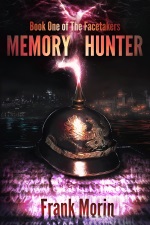
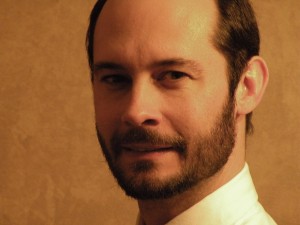 Frank Morin loves good stories in every form. When not writing or trying to keep up with his active family, he’s often found hiking, camping, Scuba diving, or enjoying other outdoor activities. For updates on his popular YA fantasy novel, Set in Stone, or his other scheduled book releases, check his website: www.frankmorin.org
Frank Morin loves good stories in every form. When not writing or trying to keep up with his active family, he’s often found hiking, camping, Scuba diving, or enjoying other outdoor activities. For updates on his popular YA fantasy novel, Set in Stone, or his other scheduled book releases, check his website: www.frankmorin.org

